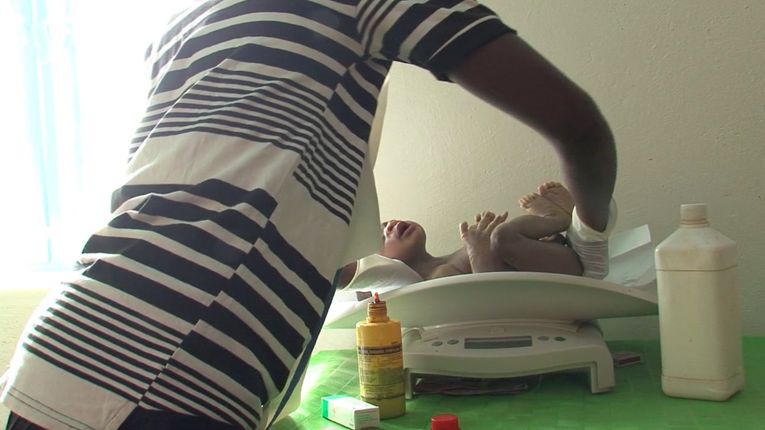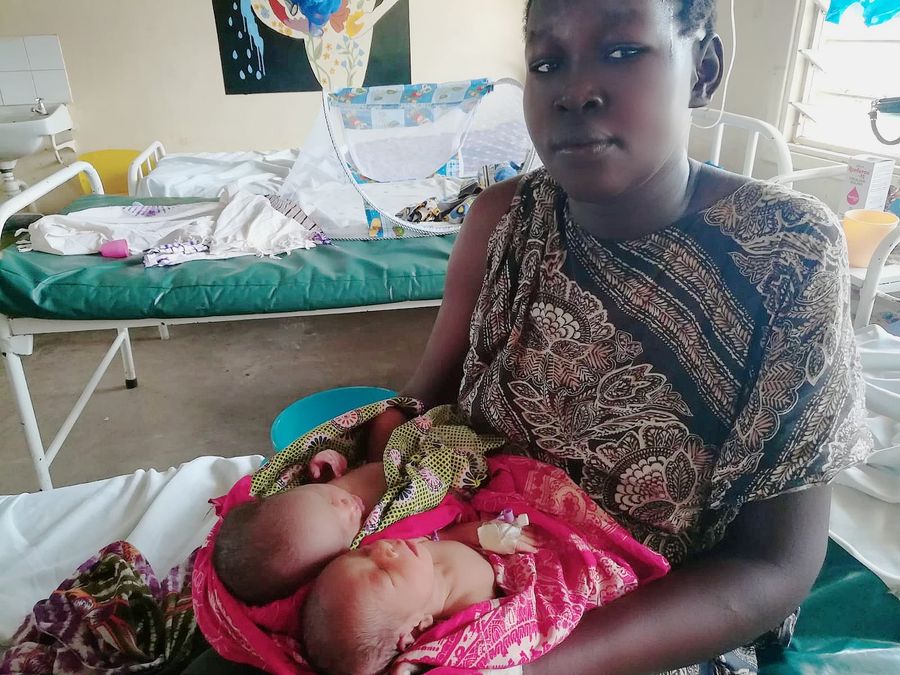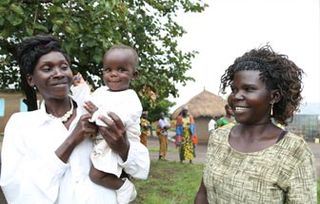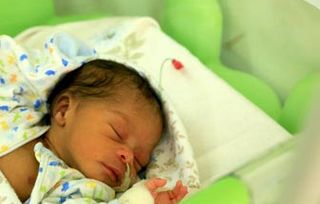
Emergency Obstetric and Neonatal Care in Kenya
Around the world, more than 800 women a day die needlessly from complications related to pregnancy and childbirth. Most of these deaths are preventable!

For too many women in developing countries, pregnancy and childbirth are often linked to obstetric complications like hemorrhage or infection and can have fatal consequences when there is lack of access to essential maternity care.
Maternal and infant deaths can be prevented by ensuring that women have access to quality maternity and neonatal care. However, many women around the world experience roadblocks when trying to get the care and support they need.
In Kenya, Malteser International and the Order of Malta are working to improve access to emergency obstetric and neonatal care for refugees and host communities in Kakuma and Kalobeyei.
How your donation helps:
The issue: Difficult access to maternal and infant care for women in Kakuma and Kalobeyei
Located in the northwestern region of Kenya, Kakuma refugee camp, established in 1992, is home to around 150,000 refugees, mostly from South Sudan and Somalia. In 2014, the camp surpassed its capacity by over 58,000 people when more refugees arrived following renewed conflict in South Sudan in December 2013. This led to congestion in several parts of the camp and as a result, the Government of Kenya in 2015 allocated a site for a new settlement near the Kalobeyei Township. Today, the Kalobeyei Settlement hosts about 38,000 refugees.
Access to reproductive and maternal health services remain a challenge in the camps and within the host communities. Around 15 percent of all pregnant women in the area develop complications during pregnancy or childbirth that requires intensive obstetric care.
Antenatal care coverage in both camps is below the recommended rate of 90% (60% at Kakuma and 71% at Kalobeyei). Many refugees seek health services at the Kakuma Mission Hospital which is located at the periphery of the camp. An assessment of the hospital showed that nearly half of its patients are refugees, however the hospital is lacking the essential infrastructure to provide the minimum standard for maternal and neonatal services. Specialized obstetric care remains a challenge; complicated cases are referred to as far away as the Lodwar County Hospital, a distance of 150 kilometers.
Our objective: Reducing Maternal and Child Mortality
This project targets expectant mothers from refugee camps in Kakuma and Kalobeyei Integrated Settlement as well as members of the host communities. The working staff at the Kakuma Mission Hospital are also included as part of the target group.
Our objective is to reduce maternal and neonatal mortality rate in the region by increasing the service delivery capacity of Kakuma Mission Hospital to offer quality emergency obstetrical services. We expect that improved access to and utilisation of emergency obstetrical services by pregnant women will contribute to reaching that objective.
Our approach: Strengthening infrastructure and sharing knowledge
Renovation and expansion of the maternity unit of Kakuma Mission Hospital
A comprehensive maternity unit should be an important component of the hospital, if it is to provide quality emergency obstetric and neonatal care. In addition to a newborn unit, the maternity unit is to include pre-natal, delivery and post-natal wards. Easy access to the delivery room from the pre-natal ward should be guaranteed as well as further entry into the post-natal ward. The newborn unit will allow for extra care for newborns and the opportunity for mothers to breastfeed and provide kangaroo care to their infants in private. To achieve these standards, the current maternity facility will be renovated and expanded.
Training on emergency obstetrics and neonatal care training for health workers
Healthcare workers form the Kakuma Mission Hospital and other surrounding health centers will receive training on integrated emergency obstetric and neonatal services. This is the first step to address existing knowledge gaps in each of the technical areas of Maternal, Newborn and Child Health in the region.
Provision of equipment and medicines (buffer kit)
Important equipment to be procured include, but are not limited to, post-operative beds, patient monitors, infant radiant warmers, resuscitation tables and kits, caesarean-section sets, portable ultrasound devices, mobile patient tables, oxygen concentrators, anaesthetic sets, and sterilizers. Supplies that will also be provided for the maternity ward include emergency medications as per government guidelines and international standards.
Photo credits of donation examples: Archive photos Tanzania, DR Congo, Uganda © Nyokabi Kahura/Malteser International
Country info
Capital: Nairobi
Area: 582,650 km²
Population: 53.8 Million
Project data
Duration: since July 2019
Partners: Embassy of the Sovereign Order of Malta to the Republic of Kenya,
Impact Building Solutions Foundation (IBSF),
Kakuma Mission Hospital
This project is financially supported by donations and grants from the German Foreign Office (Auswärtiges Amt) and ADH.












